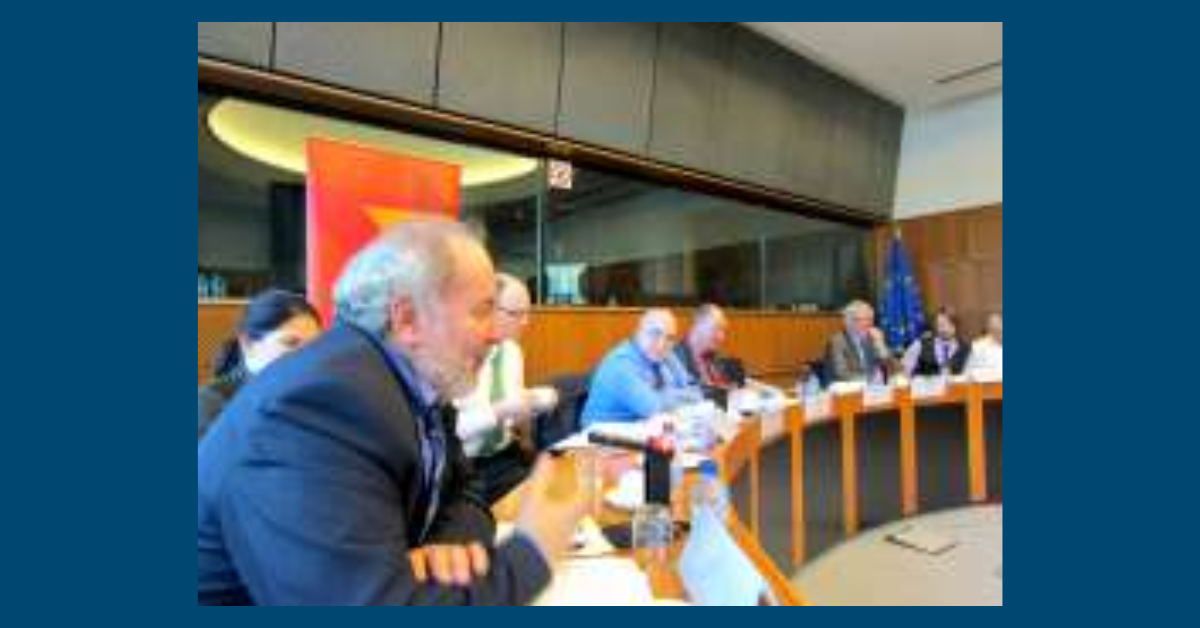 Vocational education and training is more than just producing workforce
Vocational education and training is more than just producing workforceSOLIDAR and EVBB provide Expert Round Table on March 5th 2013 in European Parliament – Brussels
Promoting work-based Learning: Dual VET System – European Experiences
Prepared in a partnership between EVBB and SOLIDAR this Expert round table and a variety of guests were invited by MEP Mrs Mary HONEYBALL (member of parliament, from UK) to come to the European Parliament in Brussels.
Under the Chair of Conny REUTER, SOLIDAR, the following experts presented their experiences as practitioners:
- Peter BACKFISCH, Internationaler Bund, Germany, presented the basic of the Dual VET system as it is practiced in Germany, identifying its origin, benefits, lessons learned and some tips for transferring the German dual system to other countries with different economic and social backgrounds “It’s not just copy paste”
- Martin MAYERL, Austrian Institute for Research on Vocational Training introduced the Austrian way and had a special view on competency based trainings regulations and on Quality in VET.
- Manfred POLZIN, MBO Raad, Netherlands, dimmed the focus on exclusive workplace orientation and reported good experiences in the Netherlands, where 2/3 of VET is done in schools (with internships) and 1/3 in enterprises – giving the chance to flexibly move between both systems – and both lead to an equivalent qualification!
- Maxime CERRUTI, Business Europe, France, from the side of employers feared that the regulated dual system hinders innovation i.e. in the rapidly changing field of ICT.
- Tino CASTAGNA (member of the EVBB-board) was contradictory on behalf of the VET-provider network EVTA and pointed to the high range of graduated from dual VET integrated into unlimited employment.
- The European Commission was represented by Jan VARCHOLA from DG Education, Audio-visual and Culture. He reminded on the 16 recommendations, committed in the Bruges Communiqué and pointed out the importance of promoting work based learning in different pillars, where countries and promoters can learning from each other: policy learning, operational learning and involving employers on this issue.
- Christian LETTMAYR, acting director of CEDEFOP reminded, that the lack of technical specialized skills at medium level and skills mismatch produce high costs for economy. He highlighted that work based learning creates technical specialized skills and better learning outcomes.
During an active discussion about 35 participants in the round table debated on different aspects of workplace oriented VET, beginning with the question, what „Entrepreneurship“ means, over the pros and conts about promoting mobility, over skills mismatch and the gap up to the unanimous agreed aspect and core point, that vocational education and training is more than just producing workforce. VET means also education to personality and dignity, to autonomy and giving a meaning.
At the end of the two and a half hours Margarida SEGARD, member of the EVBB board, composed on behalf of EVBB, three “baskets for future actions” as a result and as a vision from this round table:
- “Don’t try to invent the wheel again, let us assume the advantages of workbased vocational education and training concerning unemployment, drop outs and NEET rates, and learn from successful systems (ie. Germany, Austria, Swiss land and Netherlands) and operational good practices with VET promoters in several countries identified in European Studies and CEDEFOP reports
- Let us build skills alliances to improve and transfer work based training (companies, NGOS, VET centres, public authorities) on design and transfer of learning outcomes, let us better prepare educational staff in VET and let us point out the value of VET and its Quality– including recognition of prior learning and mobility, ECVET, Europass, etc.
- Let us create more cooperative EU- peer learning workbased learning projects and actions (policy level and operational one) where European networks can support and help as well as other VET stakeholders.”

